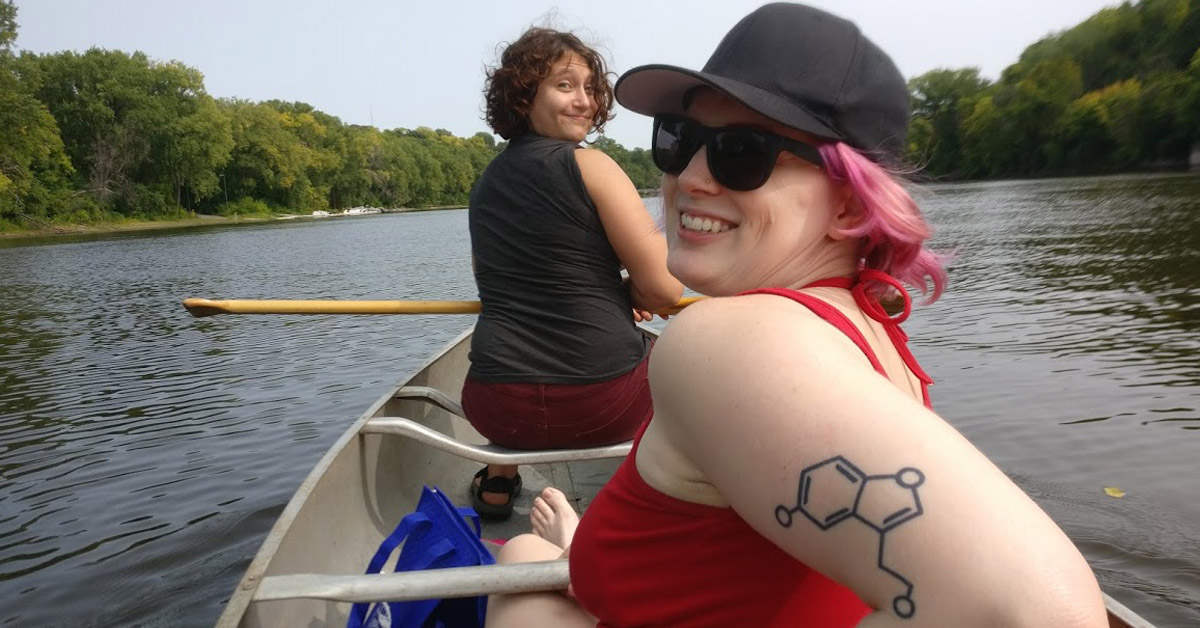Keelia Silvis is second-year MPH student at the University of Minnesota School of Public Health. As a neuroscientist turned public health professional, Keelia wants to transform public health policies to ensure they are equitable for all populations. Read her answers to the questions below to learn more about her work and experience as a University of Minnesota School of Public Health student.
Where did you attend undergrad and what was your degree/area of study?
[Keelia] For my undergrad studies I went to Macalester College in St. Paul and double-majored in psychology and neuroscience. During my degree, I focused on the psychology of racism and sexism. I took every class I could that was related to social determinants of health, though we didn’t call it that back then. At the time, I was interested in becoming a psychologist, and I didn’t even know that public health existed as a field!
If a close friend asked you why you’re studying public health, what would you tell them?
[Keelia] After college, I still didn’t realize public health was even out there. Before coming to the School of Public Health (SPH), I worked as a neuroscientist for six years with Dr. Mark J. Thomas, who directs the Medical Discovery Team on Addiction at the University of Minnesota. I loved our research, and we did really incredible work on addiction. However, our knowledge that addiction is a neurological learning disorder was too often ignored by policy makers. I realized I wanted to change the stigma against addiction, criminalization of drug use, and racist treatment of people of color in health and criminal justice systems, so I left research to pursue public health policy.
What are the reasons why you chose your program? What do you like about it?
[Keelia] I decided on the Public Health Administration & Policy (PHAP) program because policy can improve community health by addressing social determinants of health and connecting people to needed support at the systems-level. I love the PHAP program, and it’s been amazing to see how students and professors have engaged in the community during the pandemic.
What type(s) of public health work have you been involved with while at SPH? 
[Keelia] As part of a class assignment for Dr. Katy Kozhimannil’s PUBH 6735, I wrote an article about how too many Black Minnesotans are going blind from preventable disease. I was also a COVID-19 case investigator for my applied practice with the Minnesota Department of Health (MDH) to help stop the spread of COVID-19. For my Master’s Project, I partnered with MDH and the sexual violence prevention organization Men As Peacemakers to evaluate how COVID-19 impacted community-based prevention organizations.
How are you helping in the fight against COVID-19?
[Keelia] Last summer I helped COVID-19 patients who needed help understanding COVID-19 protocols and provided them with tips on how to navigate our healthcare system through MDH. During the academic year I contributed to MDH’s evaluation efforts to understand how COVID-19 impacts the on-the-ground work of public health. At the SPH, I’ve also provided support for students affected by COVID-19 through SPH Student Senate initiatives.
Can you tell us more about your role in the SPH Student Senate?
[Keelia] I am currently the Vice President of the SPH Student Senate and I’m incredibly proud of the work we do. In previous years, the goal of the SPH Student Senate was to build community and help students with their professional development. This year, we focused on public health advocacy and building diversity, equity, and inclusion at the University of Minnesota.
In what ways is the school a good fit for you?
[Keelia] I’ve found my people here. I’m grateful for the opportunities I’ve had as a student and student leader. I love how our professors facilitate growth, and I’m humbled by the passion and brilliance of my classmates. The students, staff, and faculty of the SPH continually inspire me. I’m proud to be a part of this community.

